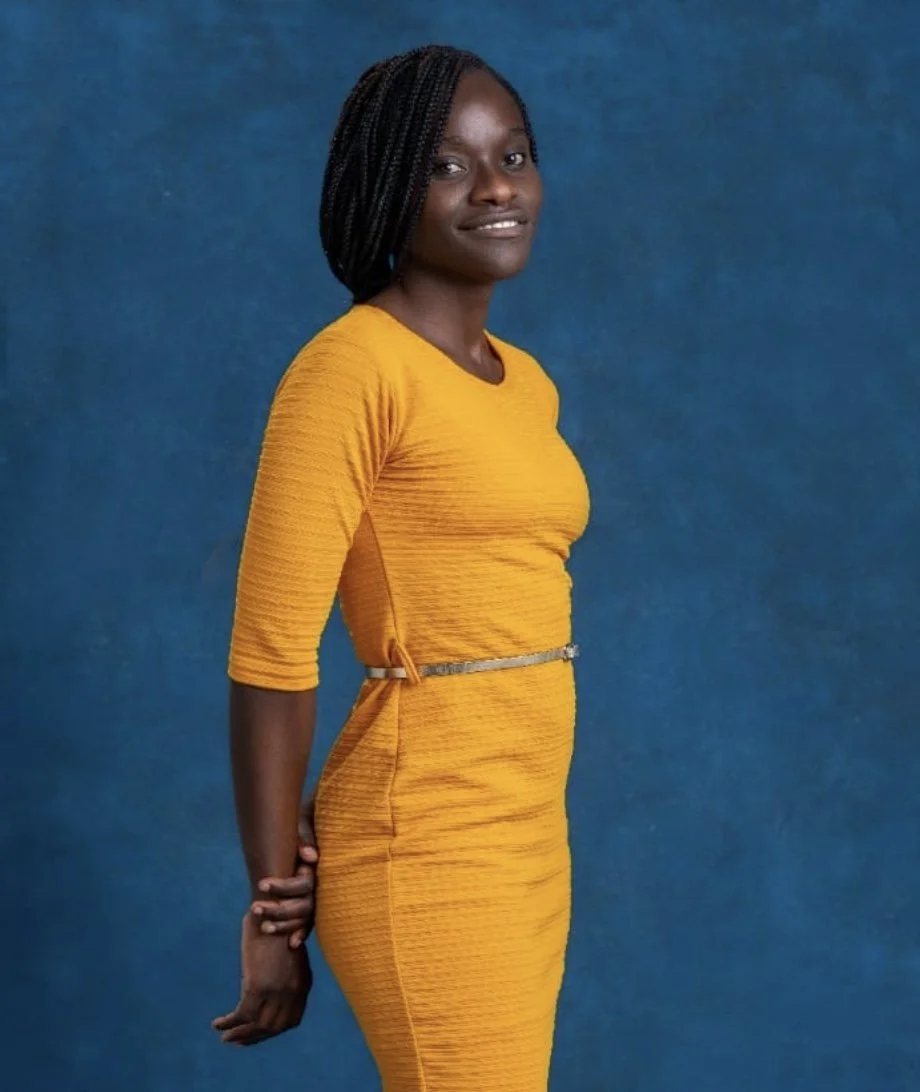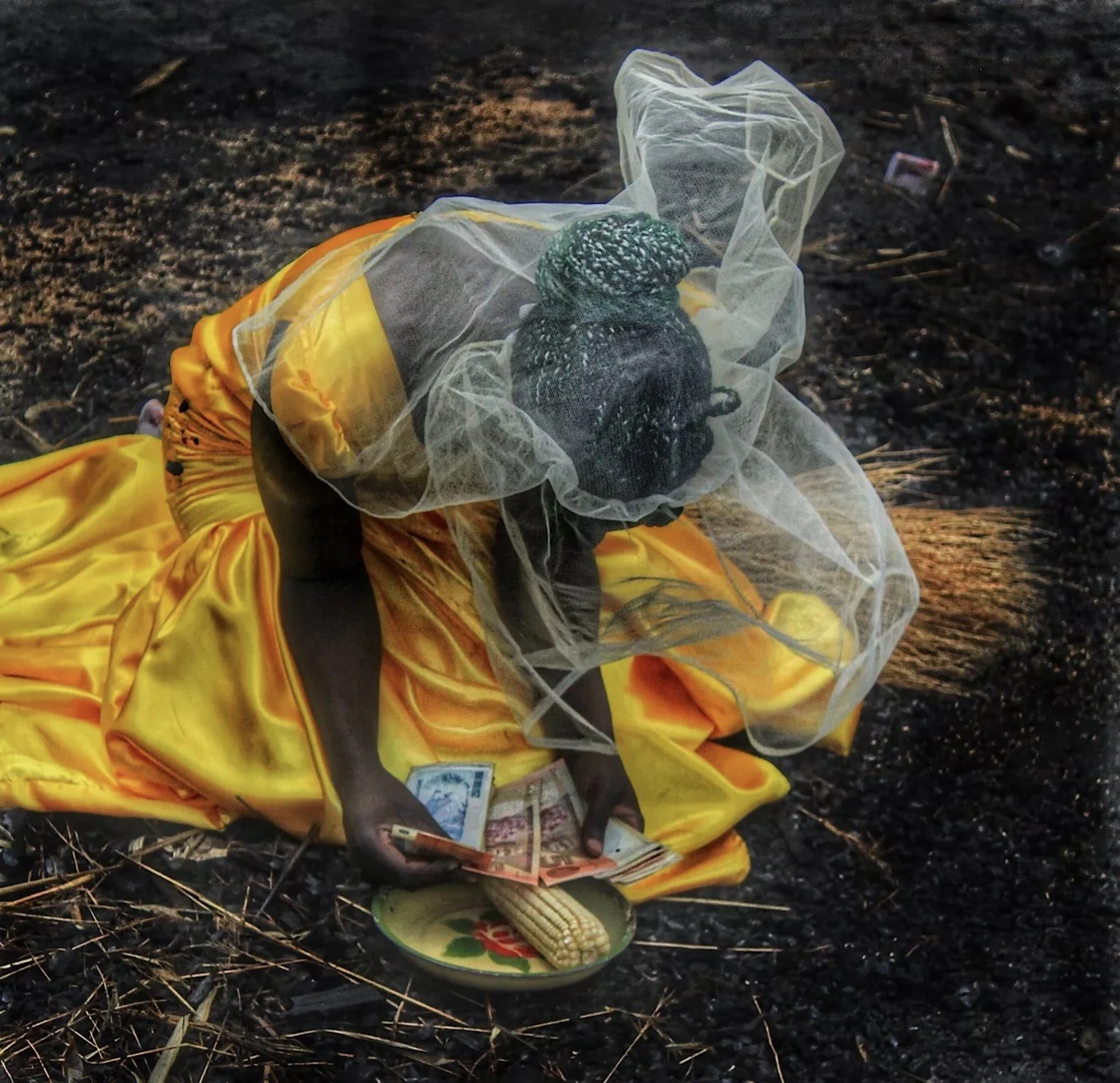Nothando Chiwanga
Born 1997, Harare, Zimbabwe | Lives and works in Harare
Nothando Chiwanga (b. 1997, Harare, Zimbabwe) is a contemporary artist working primarily in photography and performance art. Based in Harare, she received her formal training at the National Gallery School of Visual Arts and Design, where she now holds an artist residency at the National Gallery of Zimbabwe. Her practice has been further shaped through specialized workshops, including realism with John Kotze, art ethics with Julius Mushambadope, and performance art with Sithembile Msezane.
Chiwanga’s work has been featured in notable exhibitions such as New Signatures (curated by Valerie Sithole, 2019), The Green Shoots (curated by Fadzai Muchemwa, 2020), and The Will Sun Rise and Shine Post COVID-19 (curated by Valerie Sithole, 2021)—all presented at the National Gallery of Zimbabwe. Her practice has also gained international visibility through Notes for Tomorrow, an exhibition conceived by Independent Curators International (ICI) and presented at Sifang Art Museum and Haverford College in 2021. That same year, she presented her first solo exhibition, Self-on/Cell Phone, at Post Studio Art, and participated in The Young Contemporary Bootcamp, exhibiting at Rele Arts Foundation in Lagos, Nigeria.
Artist Statement
Nothando Chiwanga’s work interrogates the liminal space between personal narrative and collective experience, examining how contemporary womanhood is constructed within Zimbabwe’s evolving sociocultural landscape. Drawing from memory, domestic ritual, and embodied experience, she engages with themes of education, intimacy, bereavement, and cultural inheritance—elements that define the everyday realities of women navigating the intersection of tradition and modernity.
Through performance and photography, Chiwanga employs her own body as both archive and site of inquiry, exploring how identity is performed, constrained, and reimagined. Her portraits—marked by expressive physicality and a mastery of light, gesture, and composition—oscillate between documentary precision and poetic speculation, offering nuanced depictions of young Black womanhood in flux.
Her practice ultimately positions the female body as an active agent—a vessel of resistance, continuity, and transformation. By merging visual storytelling with conceptual inquiry, Chiwanga constructs a language of visceral realism that both documents and disrupts perceptions of women as political and social subjects, reclaiming narrative authority through presence, performance, and self-definition.




